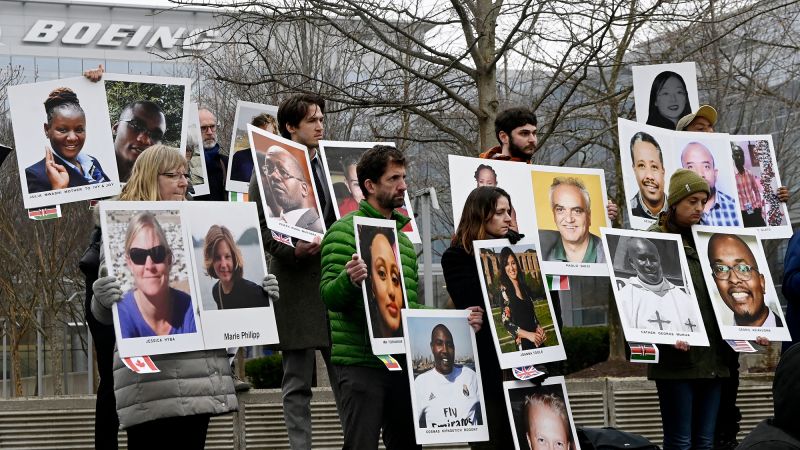In a significant development regarding safety and accountability in the aviation industry, the U.S. Department of Justice has reportedly decided to withdraw its criminal case against Boeing, the prominent aircraft manufacturer. This situation arises despite Boeing’s prior agreement to plead guilty last year to charges related to its role in the tragic accidents involving the 737 Max aircraft. The information regarding this decision was conveyed to attorneys representing the families of the victims from two devastating crashes.
The wheels of justice appear to be shifting as attorneys representing the victims’ families received a notification from Justice Department officials indicating that the government is contemplating the dismissal of the criminal case. Rather than pursuing criminal prosecution, the Department is reportedly considering negotiating a non-criminal settlement with Boeing. This new settlement is expected to include an infusion of $444.5 million into a fund designated for crash victims, which will be distributed evenly among the deceased victims’ families.
The reaction from the victims’ attorneys has been one of intense anger and disappointment. They have expressed outrage at what they perceive as an insufficient response to the tragedies that resulted in the loss of life. Families of the victims are reportedly planning to contest the DOJ’s decision in court, emphasizing their belief that a moral and ethical obligation exists to pursue accountability to the fullest extent, particularly in light of the financial institutions and corporations involved in such serious safety violations.
Sanjiv Singh, a well-known attorney representing a group of families from the 2018 Lion Air crash, quite starkly described the situation. He stated, “This is morally repugnant. It is a slap on the wrist. And it feels like a bribe.” His words underscore the profound sense of injustice that the families feel, as they believe the proposed settlement fails to adequately reflect the gravity of the situation and the tragic loss of life that has occurred. Furthermore, the sentiments echoed by Singh reflect a broader discontent regarding corporate accountability in cases of negligence and misconduct.
In an attempt to understand the gravity of these events, one must reflect on the background of the accidents: the Lion Air crash in October 2018 followed by the Ethiopian Airlines crash in March 2019 resulted in the deaths of 346 individuals. These crashes were heavily scrutinized and resulted in allegations of significant fraud against Boeing, asserting that the company had misled the Federal Aviation Administration (FAA) as the 737 Max aircraft underwent its initial certification process. Such accusations and the subsequent fatalities have raised critical questions about aviation safety standards and the regulatory frameworks surrounding them.
In contrast to the outrage expressed by the victims’ families and their representatives, the Justice Department has refrained from commenting on the matter publicly. Similarly, Boeing has yet to provide any immediate feedback in light of the ongoing discussions and the lawsuit implications. This lack of transparency raises further concerns about accountability and the willingness of corporations to accept responsibility for their actions when faced with horrific consequences.
As this story continues to unfold, significant implications lie ahead for both Boeing and the aviation industry as a whole. The negotiations and potential settlements could reshape the future landscape of corporate responsibility and regulatory oversight in aviation. The expectation of justice remains high among the victims’ families, as they seek closure and accountability for their loved ones lost in the crashes.
This developing narrative highlights the tension between corporate interests and the imperative for accountability in cases of catastrophic failures. As public scrutiny intensifies, Boeing and the Department of Justice must navigate these complex waters with care, acknowledging the human cost that tragedy bears. Further updates regarding the negotiations and potential legal proceedings are anticipated in the near future.



